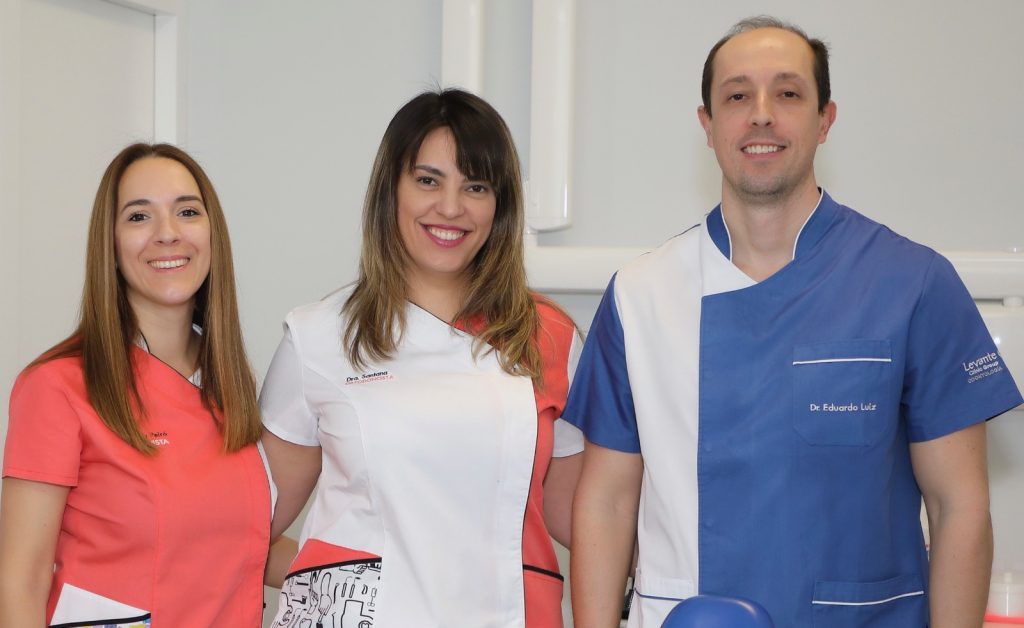IMPLANTOLOGY AND ORAL REHABILITATION

Smile Again
Implants are the treatment that can give you a new smile in addition to restoring the health and functionality of your mouth.

What are the advantages of implants?
• Implant dentures look like natural teeth.
• They are fixed prostheses, so they facilitate and improve speech compared to removable prostheses.
• Increase comfort, as patients have the sensation of fixed teeth.
• They improve the chewing ability of the patient.
• They improve self-esteem.
• Improve oral health.
• They are conservative treatments, if we take into account that we do not need to wear out neighboring teeth as with bridges.
• Durability, with proper hygiene, care and revisions, is a long-term treatment.
MAIN DOUBTS
What are dental implants?
Dental implants work like artificial dental roots.
They provide a strong and solid base for a future prosthesis.
Can implants fail?
The success of a treatment depends a lot on the quality of the professional, the material used and the care of the patient, but in general the success rate is higher than 98%.
How should I take care of implants?
Each type of prosthesis needs specific care, but in general a brushing technique, dental floss, rinses with antiseptics and periodic visits are usually sufficient.
Is the dental implant for everyone?
In general, any healthy person without any significant health problem can undergo implant treatment.
The collaboration of the patient is very important to maintain proper hygiene, avoid harmful habits such as tobacco and control chronic diseases such as diabetes.
In any case, before performing a treatment with implants, the professional will carry out a proper physical examination and a health questionnaire to find out if this is the right treatment for you.
What are the steps for implant placement?
The first step is an adequate treatment plan, clinical and radiological study to assess the type of prosthesis according to the needs of each patient.
The next step is the placement of the implant in the bone. Once the surgery is finished, we will wait for a healing period of 2-3 months before proceeding with the prosthesis – according to the conventional technique.
Some treatment steps may vary depending on the type of prosthesis and the patient’s bone availability.
Does implant surgery hurts?
In edentulous sites – without teeth – the surgery is quite simple; the patient needs only a slight analgesic control after the surgery.
In cases of one or more extractions, an anti-inflammatory associated with an analgesic may be necessary.
